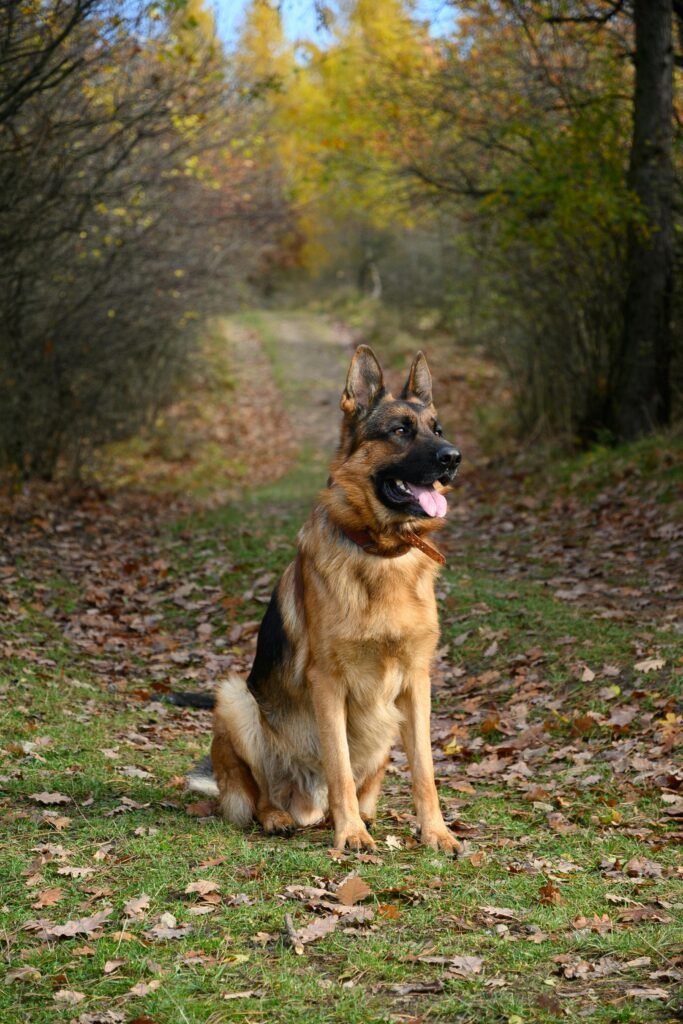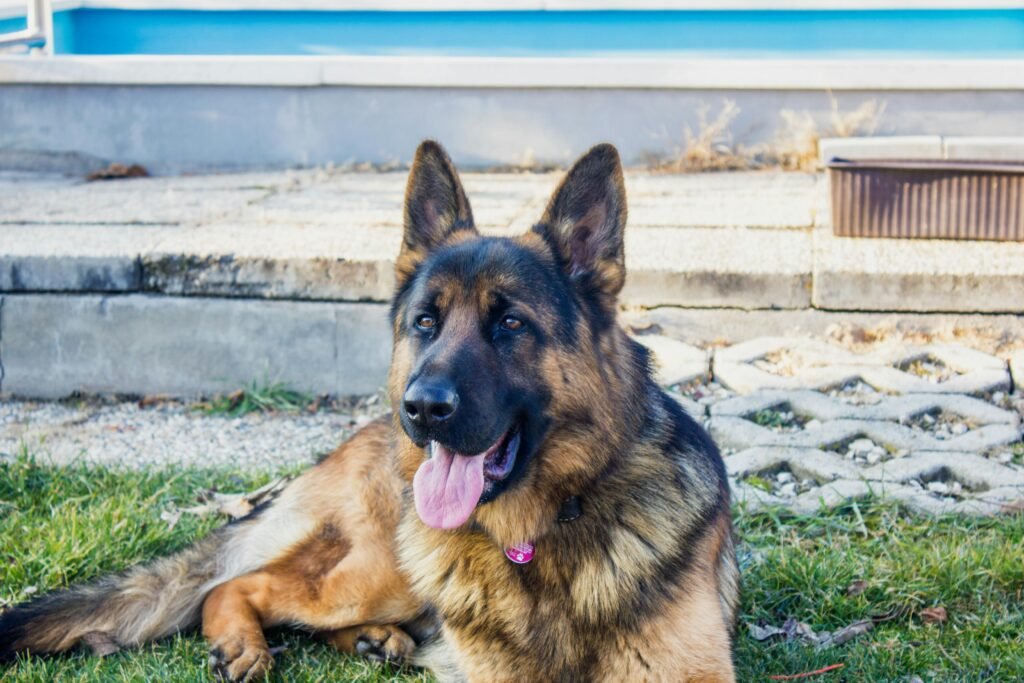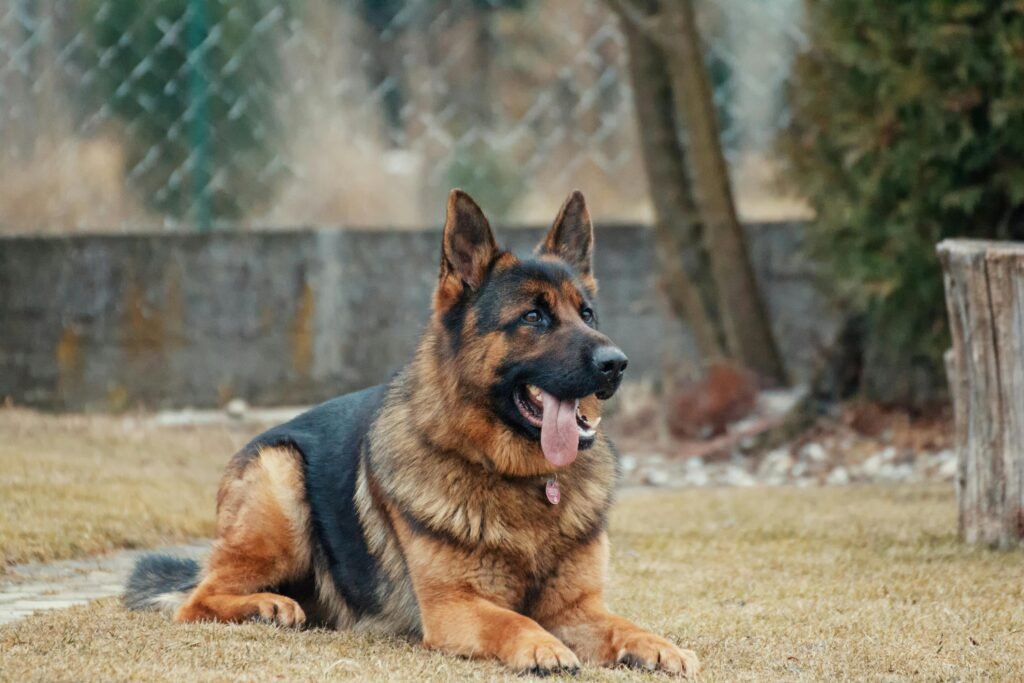German Shepherds are one of the most well-known and loved dog breeds. They are famous for their intelligence, loyalty, and versatility. Whether you’re thinking about adopting a German Shepherd or simply curious about this amazing breed, this blog post will guide you through everything you need to know.


Introduction to German Shepherds
German Shepherds are renowned for their bravery, loyalty, and intelligence. They are versatile dogs that excel in many roles, including as family pets, working dogs, and companions. If you are considering getting a German Shepherd or want to learn more about this breed, this post will cover everything from their history and personality to care tips.
History of the German Shepherd
Origin of the Breed
The German Shepherd breed was developed in Germany in the late 19th century. Max von Stephanitz, a German cavalry officer, wanted to create the ideal working dog. By combining different herding dogs, he developed the German Shepherd we know today.
Why They Were Bred
Originally, German Shepherds were raised to herd and defend livestock. However, their intelligence, strength, and versatility soon made them ideal for other roles, such as police work, military service, and search and rescue operations. Today, they are still used for these jobs and are also popular as pets.
Physical Characteristics of a German Shepherd
Size and Weight
German Shepherds are large dogs. Males typically weigh between 65-90 pounds, while females weigh slightly less, between 50-70 pounds. They have a strong, muscular build that helps them perform physically demanding tasks.
Coat and Colors
German Shepherds have a double coat, which protects them from various weather conditions. Their coat can come in several colors, including black and tan, black and red, all black, and even sable. Tan and black color schemes are the most popular.
Distinct Features
German Shepherds are easily recognizable by their upright ears, sharp eyes, and bushy tail. They have a strong, confident posture and a face that expresses intelligence and focus.
German Shepherd Temperament and Personality
Loyalty and Protection
German Shepherds are known for their loyalty to their families. They are protective and will often watch over their loved ones, making them excellent guard dogs. This protective nature means they can be reserved around strangers, but they are rarely aggressive without reason.
Intelligence and Work Ethic
German Shepherds are one of the most intelligent dog breeds, which makes them highly trainable. They are often used in roles that require quick thinking and problem-solving, such as police and military work. Their desire to work and please their owners makes them excellent companions for those willing to give them the time and attention they need.
Training a German Shepherd
Why They Are Easy to Train
Because German Shepherds are so intelligent and eager to learn, they are relatively easy to train. They pick up new commands quickly and enjoy challenges. However, they need consistent training from a young age to ensure they grow up well-behaved.
Effective Training Tips
When training a German Shepherd, positive reinforcement is key. Use treats, praise, and toys to reward good behavior. It’s important to start training early, especially with commands like “sit,” “stay,” and “come.” Socialization is also crucial to help them get used to other people, dogs, and environments.
Exercise Needs of a German Shepherd
Daily Physical Activity
German Shepherds are active dogs that need regular exercise. They require at least one to two hours of physical activity each day. This can include walking, running, or playing fetch. Without enough exercise, they can become bored, which may lead to destructive behavior.
Mental Stimulation
In addition to physical exercise, German Shepherds need mental stimulation. Puzzle toys, training sessions, and activities like agility courses are great ways to keep their minds active. They love to work and are happiest when they have a task to focus on.
German Shepherds as Working Dogs
Police and Military Work
German Shepherds are widely used in police and military roles because of their intelligence, strength, and courage. They are trained to detect drugs, explosives, and even track missing persons. Their loyalty and bravery make them perfect for these demanding jobs.
Service and Therapy Dogs
In addition to their role in law enforcement, German Shepherds also serve as service and therapy dogs. They help people with disabilities by guiding them, offering emotional support, or assisting with tasks like opening doors or picking up items.
Health Concerns in German Shepherds


Common Health Issues
Like all dog breeds, German Shepherds are prone to certain health issues. Some common problems include hip dysplasia, elbow dysplasia, and degenerative myelopathy. Regular vet check-ups and maintaining a healthy lifestyle can help catch and manage these issues.
Preventative Care
To keep your German Shepherd healthy, regular vet visits are important. Vaccinations, flea and tick prevention, and dental care are all essential parts of their health routine. It’s also important to feed them a balanced diet and give them plenty of exercise.
Diet and Nutrition for a German Shepherd
Feeding Guidelines
German Shepherds need to be given a premium dog food that is nutritionally balanced and fits their demands. Adult German Shepherds usually need 3 to 4 cups of food per day, divided into two meals. Their age, weight, and degree of exercise can all affect how much they need.
Foods to Avoid
Some foods can be dangerous for German Shepherds, such as chocolate, onions, garlic, and grapes. Avoid giving them table scraps that are high in fat or sugar, as this can lead to health problems like obesity.
Grooming and Care for a German Shepherd
Managing Shedding
German Shepherds shed year-round, with more shedding occurring in the spring and fall. Brushing them frequently—at least a few times a week—will help control shedding and maintain the health of their coat.
Bathing and Coat Care
German Shepherds only need to be bathed every few months unless they get particularly dirty. Make sure to use a dog-friendly shampoo. Regular nail trimming and ear cleaning are also important parts of their grooming routine.
Puppy vs Adult German Shepherd: What to Expect
German Shepherd Puppies
Puppies of German Shepherds are lively and inquisitive. They require a lot of attention, training, and socialization to ensure they grow up to be well-behaved adults. Early training is essential to help them learn good manners and basic commands.
Adult German Shepherds
As they mature, German Shepherds usually become more calm and focused, though they remain active throughout their lives. They are loyal and protective of their families and enjoy having a job or task to keep them busy.
German Shepherds and Family Life
Why They Are Great Family Pets
German Shepherds make excellent family pets because of their loyalty and protective nature. They bond closely with their families and are gentle and patient with children. However, their large size and active nature mean they need plenty of space and exercise.
Interacting with Children
German Shepherds are typically good with children, but it’s important to supervise interactions, especially with younger kids. They are protective and patient, but their size and energy can sometimes be overwhelming for small children. Teaching children how to properly interact with dogs is key.
Adopting a German Shepherd
Rescue vs. Buying from a Breeder
When adopting a German Shepherd, you can choose to rescue one from a shelter or buy from a breeder. Rescue dogs may already be trained and socialized, and giving them a home is incredibly rewarding. If you decide to buy from a breeder, make sure they are reputable and focus on the health and temperament of their dogs.
What to Look for in a Breeder
A good breeder will provide health clearances for both parent dogs and allow you to meet the puppies and their mother. They should also ask you questions to make sure you’re a good fit for one of their puppies.
Famous German Shepherds in Movies and Pop Culture
German Shepherds have appeared in many movies and TV shows, thanks to their strong and loyal nature. One famous German Shepherd is “Rin Tin Tin,” a star of early Hollywood films. German Shepherds continue to be popular in the media, further showcasing their intelligence and strength.
Conclusion: Is a German Shepherd the Right Dog for You?
German Shepherds are loyal, intelligent, and protective dogs that thrive in active homes. They are excellent working dogs and family companions, but they do require regular exercise, training, and mental stimulation. If you’re ready to invest the time and energy needed to care for a German Shepherd, they will reward you with endless loyalty and love.
FAQs
- How much exercise does a German Shepherd need? German Shepherds need at least 1 to 2 hours of exercise daily to stay happy and healthy.
- Are German Shepherds good family dogs? Yes, they are loyal, protective, and great with children when properly trained and socialized.
- Do German Shepherds shed a lot? Yes, they shed year-round, especially in the spring and fall. Regular brushing helps manage shedding.
- What is the lifespan of a German Shepherd? German Shepherds typically live between 9 to 13 years.
- Are German Shepherds easy to train? Yes, German Shepherds are highly intelligent and eager to please, making them easy to train with consistent, positive reinforcement.


